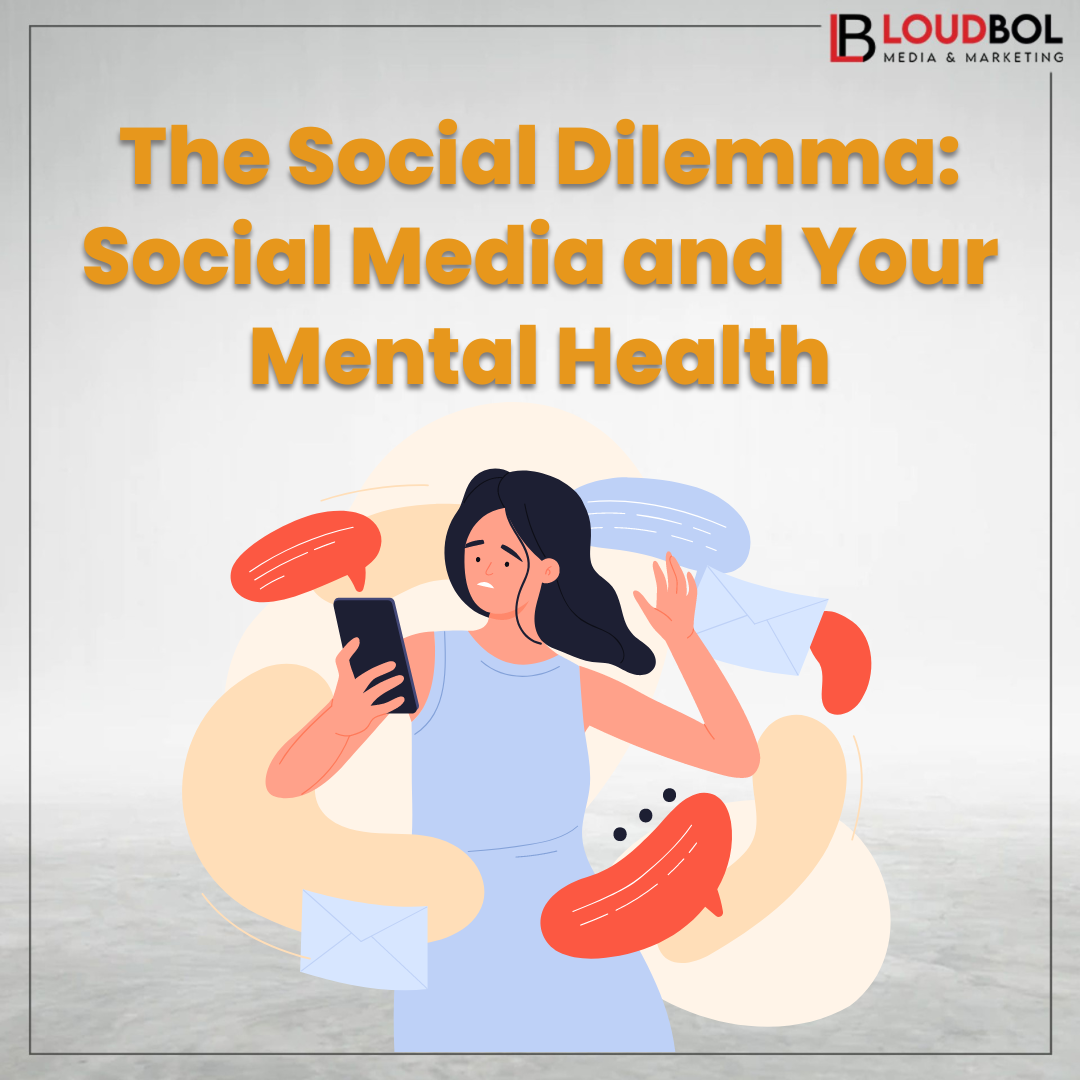Social media platforms like Instagram have become important part of our lives. While these platforms offer a constant stream of connection and motivation, recent studies suggest a potential downside, particularly for Generation Z.
This post explores the growing concern surrounding social media’s impact on Gen Z’s mental health.

The documentary “The Social Dilemma” sparked a much-needed conversation about the dark side of social media. While platforms like Facebook, Instagram, and Twitter connect us globally, they can also have a significant negative impact on our mental wellbeing. This blog post will delve into the ways social media use can be detrimental to mental health and explore strategies to navigate these platforms more healthily.
The Algorithmic Trap: Designed to Hook, Not Help
The very design of social media platforms is built on exploiting psychological vulnerabilities. Former tech insiders featured in “The Social Dilemma” reveal how algorithms prioritize keeping users engaged, not necessarily informed or happy. These algorithms curate content to trigger emotions like fear, anger, or envy, leading to compulsive checking and increased screen time. The constant barrage of perfectly curated feeds can fuel feelings of inadequacy and social comparison, especially for teenagers and young adults.

The Cycle of Likes and Loneliness
Social media thrives on validation. Likes, comments, and shares activate the reward centre in our brains, releasing dopamine, a neurotransmitter associated with pleasure. This creates a cycle where we crave the positive reinforcement of online validation, leading to increased posting and engagement. However, these “likes” are fleeting and ultimately hollow. They fail to provide the deep sense of connection and belonging essential for true well-being. Research suggests that excessive social media use can lead to increased feelings of loneliness and isolation.
FOMO: The Fear of Missing Out
Fear of missing out (FOMO) is a powerful force driving social media use. The constant stream of updates about friend’s vacations, parties, and achievements can create a sense that everyone else’s life is more exciting and fulfilling. This fuels anxiety and dissatisfaction with our own lives. Social media often presents a distorted reality, showcasing the highlight reels rather than the everyday struggles.
Sleepless Nights and a Stressed Mind
The blue light emitted from our devices disrupts our sleep patterns, making it harder to fall asleep and stay asleep. Sleep deprivation is a major risk factor for anxiety, depression, and other mental health problems. Additionally, the constant stimulation and negativity often present on social media can contribute to feelings of stress and overwhelm.

Taking Back Control: Strategies for a Healthier Social Media Experience
So, how can we navigate the social media landscape without sacrificing our mental health? Here are some tips:
Be mindful of your screen time: Set limits on how much time you spend on social media each day. There are apps available to help you track and manage your usage.
Curate your feed: Unfollow accounts that make you feel bad about yourself or that contribute to negativity.
Focus on real-life connections: Prioritize face-to-face interactions with friends and family. Social media can be a great tool to stay connected, but it shouldn’t replace real-life relationships.
Post authentically: Share your true self, not just the highlight reel.
Embrace the unsubscribe button: Unsubscribe from notifications and emails that tempt you to check social media constantly.
Practice gratitude: Focus on the positive aspects of your life, both online and offline.
Seek professional help: If you are struggling with social media addiction or its negative impact on your mental health, don’t hesitate to seek professional help. A therapist can help you develop healthier coping mechanisms and improve your relationship with social media.

Conclusion: Finding Balance in a Connected World
Social media can be a powerful tool for connection, but it’s important to be aware of its potential pitfalls. By being mindful of our usage and prioritizing real-life connections, we can reap the benefits of social media platforms without sacrificing our mental well-being.
Finding balance is key. Let’s strive to use social media for good, fostering genuine connections and promoting positivity, rather than allowing it to manipulate us and negatively impact our mental health.
Read more blogs at https://loudbol.com/blogs/




Hey there You have done a fantastic job I will certainly personally recommend to my friends Im confident theyll be benefited from this site
Wow superb blog layout How long have you been blogging for you make blogging look easy The overall look of your site is magnificent as well as the content
obviously like your website but you need to test the spelling on quite a few of your posts Several of them are rife with spelling problems and I to find it very troublesome to inform the reality on the other hand Ill certainly come back again